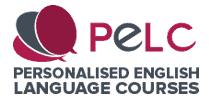Direct and Indirect Questions
My interest in direct and indirect questions in English has been stimulated after recently coming across an exercise on making indirect questions in a coursebook.
This post explains the differences in sentence structure between both direct and indirect questions. It will also be essential to highlight the varying levels of politeness and formality between both question types, and also between the various phrases used to introduce an indirect question.
To get things rolling, let’s have a look at a typical conversation which might take place on the street. Notice how I make use of polite, indirect questions beginning with ‘do you know …’ or ‘could you tell me …’ to ask for help or directions:
Me: Excuse me. Could you tell me where I can find a bakery around here?
Person in the street: Of course. There’s a good bakery down that side street there.
Me: Great, thank you. And do you know if there’s a pub around here which shows live English football?
Person in the street: Your best bet is to walk straight down this road to the Main Square. There’s an Irish Pub there which shows all the matches.
Me: Great, thanks. I appreciate it.
What are Direct Questions?
Direct questions are formed by using either a question word (what, why, where, how, when) or an auxiliary verb (variants of do, have and be).
One of the main differences between direct and indirect questions lies in the levels of politeness they imply. We tend to use direct questions with people we know well, such as family members and friends. Moreover, direct questions are more appropriate for topics which are not of a ‘sensitive’ nature.
There are three main kinds of direct questions:
Type 1 - Yes/No Questions
Do you have kids?
Type 2 - Wh-word/Interrogative word questions
Where is the bus station?
The answer to an interrogative word question obviously requires some elaboration beyond a single word, such as ‘yes’ or ‘no’.
Type 3 - Choice Questions
Do you want to meet in the morning or in the evening?
What are Indirect Questions?
In contrast to direct questions, indirect questions are typically more polite and formal. We tend to use them with strangers, mere acquaintances, in professional contexts, or when a topic might be ‘sensitive’.
Example of an indirect question:
Could you tell me where the nearest chemist is?
Useful Phrases for Forming Indirect Questions
- Can you tell me …
- Could you tell me …
- Do you know …
- I was wondering …
- Do you have any idea …
- I’d like to know …
- Would it be possible …
- Is there any chance …
- Would you mind telling me …
- Would you mind if I asked …
It is worth noting that the individual phrases above exhibit different layers of politeness. Certainly, phrases beginning with ‘Would you mind …’ are more polite than ‘Can you tell me …’ and ‘Do you know …’ In fact, ‘Would you mind …’ is perhaps excessively polite in the vast majority of contexts.
Grammatical Rules for Forming Indirect Questions
In my experience, the teaching of direct and indirect questions is challenging due to the many rules which students need to master to be able to correctly form indirect questions:
Rule 1 - The ‘is/are shift’
Direct: Where is the bus station?
Indirect: Could you tell me where the bus station IS?
In indirect questions containing is/are, the verb (is) comes after the subject (bus station).
The key point to remember here is that, in indirect questions, the word order at the end of an indirect question resembles that of the beginning of a declarative sentence.
Question: Could you tell me where THE BUS STATION IS?
Answer: THE BUS STATION IS on Main Street
Hence, the final four words of the indirect question are the same as the opening four words of a full declarative answer.
You will notice this word order in the examples of indirect questions below for other rules as well.
Rule 2 - Do not use the auxiliary verbs do/does/did in indirect questions
Direct: What time does the train arrive?
Indirect: Do you know what time the train arrives?
In indirect questions, we don’t use the auxiliary verbs do/does/did. Moreover, you have to convert the verb ‘arrive’ (direct question) to ‘arrives’ (indirect question). Remember that the word order should be the same as in a positive sentence.
Admittedly, things get a little more confusing for students if there are two ‘do’ verbs in a direct question:
Direct: What did he do last night?
However, it’s just essential to focus on dropping the auxiliary verb, did, which comes immediately after the question word ‘What’. We must retain the past simple form at the end of the indirect question, hence we should change ‘do’ to ‘did’:
Indirect: Do you know what he DID last night?
Rule 3 - Other Auxiliary and Modal verbs must be inverted in Indirect Questions
Direct: Why has she just gone running again when he only went this morning?
Indirect: Do you have any idea why SHE HAS* gone running again when he only went this morning?
The auxiliary verbs ‘have’ and ‘has’ can be used in both direct and indirect questions. However, as you can see in the example direct question above, ‘has’ comes before the subject (she). Conversely, ‘has’ comes after the subject in the indirect question.
It’s a similar story with the verb ‘will’ and modal verbs such as ‘can’:
Will:
Direct: When will she finish the course?
Indirect: Do you know when SHE WILL** finish the course?
Can:
Direct: What can I do to improve my English skills?
Indirect: Can you tell me what I CAN do to improve my English skills?
* shorten to she’s
** shorten to she’ll
Rule 4 - Direct questions beginning with ‘can’
For direct questions with ‘can’, you can use the phrase “would it be possible …” to make it indirect:
Direct: Can you complete the task by tomorrow?
Indirect: Would it be possible for you to complete the task by tomorrow?
Rule 5 - Yes/No Direct Questions –> “If” in Indirect Questions
A yes or no question, as the name suggests, expects an answer of “yes” or “no”. Here are three direct yes/no direct questions:
1. Are you coming to the party?
2. Does James love Leah?
3. Have you ever had problems like this before?
You may have noticed that yes or no questions do not begin with typical questions words such as “when”, “why”, “where”, “how” and “which”. Instead, yes and no questions tend to begin with various word forms of the auxiliary verbs, ‘do’ and ‘have’, or the structure be + subject.
Now that I’ve dealt with the direct yes/no questions, let’s turn our attention to potential indirect versions:
1. Are you coming to the party? = Can you tell me IF you are coming to the party?
Notice that indirect yes/no questions contain ‘if’, or ‘whether’. Moreover, one needs to invert be + subject (Are you …) to get (... you are).
2. Does James love Leah? = Do you know if James loves Leah?
‘Love’ becomes ‘loves’. ‘If’ is required again.
3. Have you ever had problems like this before? = Could you tell me if YOU HAVE ever had problems like this before?
Similar to example 1, one needs to invert have + subject (Have you …) to get (... you have).
Direct and Indirect Questions Exercise
Make indirect questions from the direct questions below. Click on this link for the answers.
1. Is Rafał coming to the party?
2. Which laptop do you recommend?
3. Where is my homework?
4. Has she finished yet?
5. Where is the train station?
6. What does she think about the idea?
7. Have you got any children?
8. What is the capital of Nigeria?
9. Has she checked in yet?
10. Where is that new pizza restaurant on Grodzka street?
Final Thoughts
Certainly, there are elements of the English grammatical system which are bound up in ‘grammar nonsense’. For example, the difference between will and going to is ever so trivial, so much so that proficient and native speakers of English would hardly notice the difference if you used one form or the other.
However, I do believe that it’s worth acquainting yourselves with the differences between direct and indirect questions and the contexts in which they might be used. Getting to know the rules for forming indirect questions may save you from coming across as being impolite to strangers, acquaintances and your bosses and managers at work.



